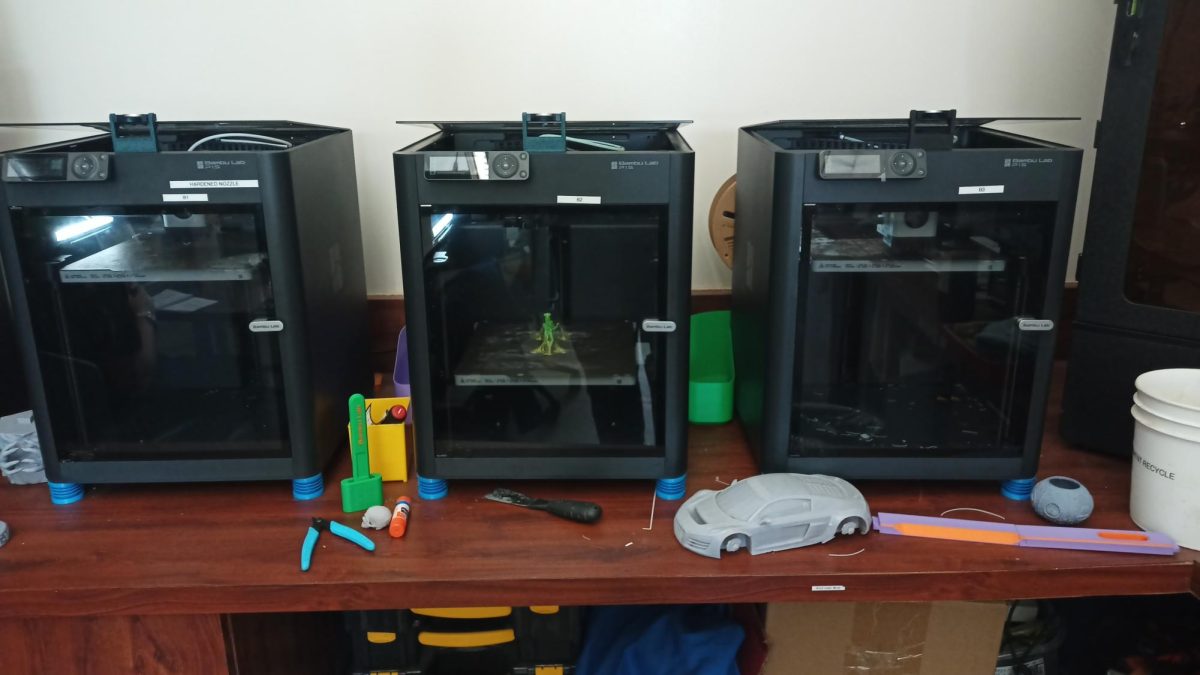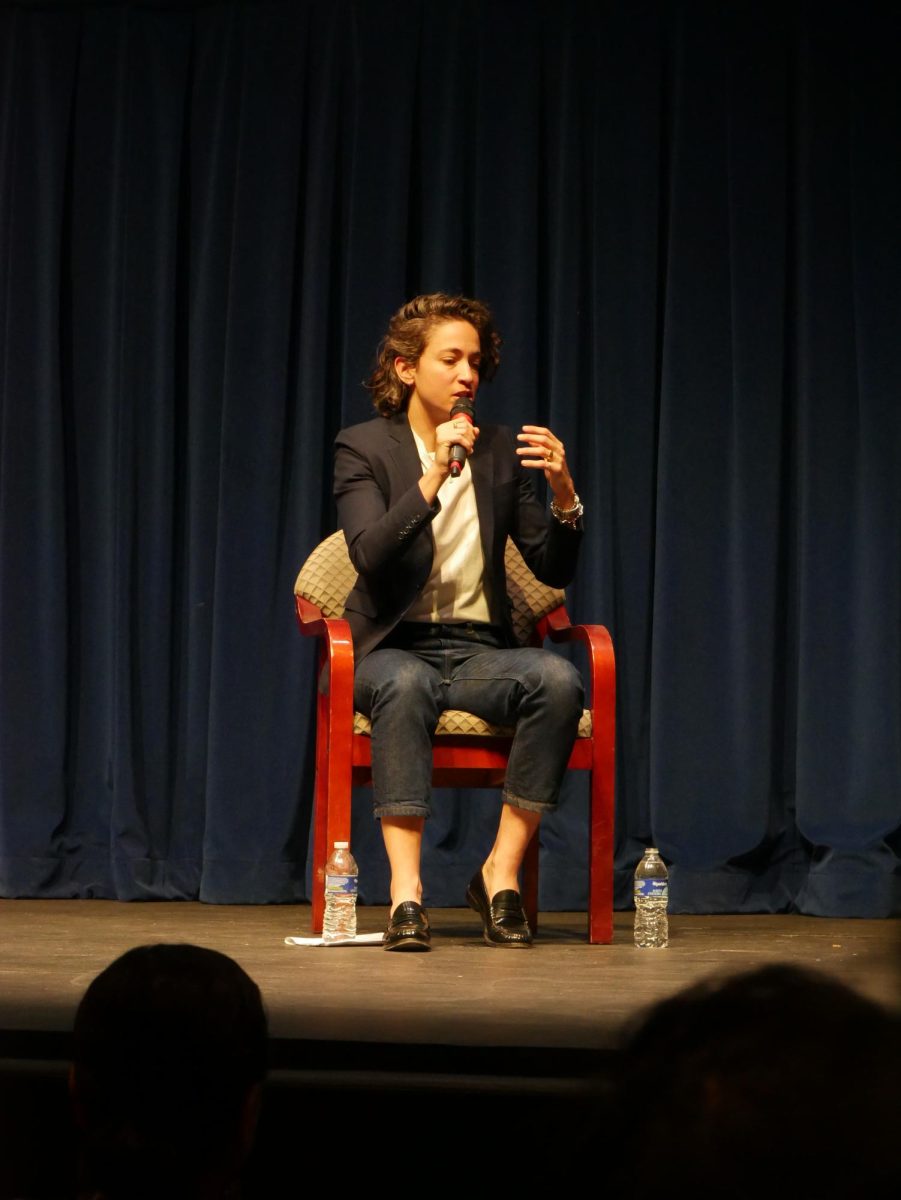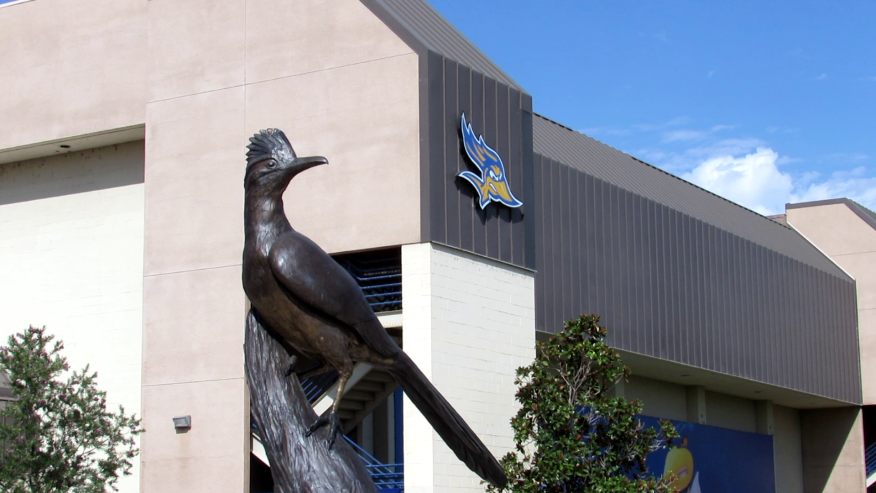By Steven Barker
Staff Writer
In conjunction with state-wide efforts to reduce water use during the ongoing drought, California State University, Bakersfield has pledged to cut its water consumption by 20-percent by 2020.
The announcement is in accord with a Drought Emergency Order issued on Feb 4 by the Chancellor’s Office requiring universities to reduce water use by that amount.
Associate Vice President for Facilities Management Patrick Jacobs said CSUB has already developed a number of solutions to reach the CSU mandate. While the university plans to install low-flow shower heads and faucet controls to lower building usage, Jacobs said that, since irrigation constitutes 80-percent of CSUB’s total water use, many of the solutions target a reduction in campus irrigation.
The changes are expected to have an immediate and lasting influence on CSUB’s vegetation.
“Color in all of these materials can change substantially, becoming brown or yellow,” Jacobs wrote in an April 15 memorandum addressed to the campus community. “There will be an increase in tree breakage or death around campus with various tree varieties (pine, eucalyptus and redwoods for examples) will react accordingly.
“Induced water stress may cause irreversible damage to all plants. Weed developments in grass areas may also increase throughout campus and take years to control.”
According to the same memo, the following areas will be unaffected by the irrigation changes: Hardt Field, the competition soccer and practice fields, the softball field, the amphitheater, the AYSO soccer fields, the sand volleyball courts, Student Recreation Center play fields and the Children’s Center.
To further reduce water consumption in campus buildings, CSUB has installed 20 waterless urinals and new flushing mechanisms on toilets over the last two and three years respectively. Taken together, the installations have saved a combined 866,000 gallons of water per year, savings which roughly equal a single day’s total water use during September.
The university’s reduced water consumption will also bring financial savings. Per Jacobs, assuming water rates remain constant, the 20-percent reduction will result in an annual savings of $55,000 in irrigation costs.
A number of students were pleased with the university’s announcement.
“I think it’s great that we’re trying to save water,” said Lorena Mendoza, a sophomore kinesiology major. “As a school, we use so much water on our grasses and trees and in our buildings. Anything we save is a big help.”
While Jesus Gutierrez, a junior geology major, also supports the reduction in water consumption, he questions the foresight of the university when it decided upon its landscaping.
“Bakersfield is literally a desert,” Gutierrez said. “Did the university not think, when it was designing its campus, that plants that could thrive of low rainfall would be a good idea?”
Jacobs also said that, while the CSU is pursuing state funding to offset the costs of implementing arid landscaping a current lack of monies is limiting the planting of arid vegetation to the new student dorms currently being constructed near CSUB’s east entrance. Both he and Marcos Rodriguez from Facilities Management also said that the installation of drip irrigation systems and modifications to CSUB’s sprinkler systems are also being considered.
Executive Assistant to the President Evelyn Young said CSUB President Horace Mitchell is open to feedback from students, faculty, staff and university supporters regarding the school’s course of action.
“President Mitchell has created multiple vehicles and avenues to engage students and faculty in dialogue, including broad-based committees and forums for campus discussion on any topic of interest,” Young said in an email. “The President’s Fireside Chats are designed specifically to hear from students on any topic of interest. Other opportunities for campus dialogue, suggestions, and feedback include University Council, which meets every third Friday of the month at 10 a.m. in the Albertson Room and is open for any member of the campus community to share ideas on any topic of interest.”
She also said interested individuals could send emails to [email protected] as a means of communicating with the university and sending feedback.











